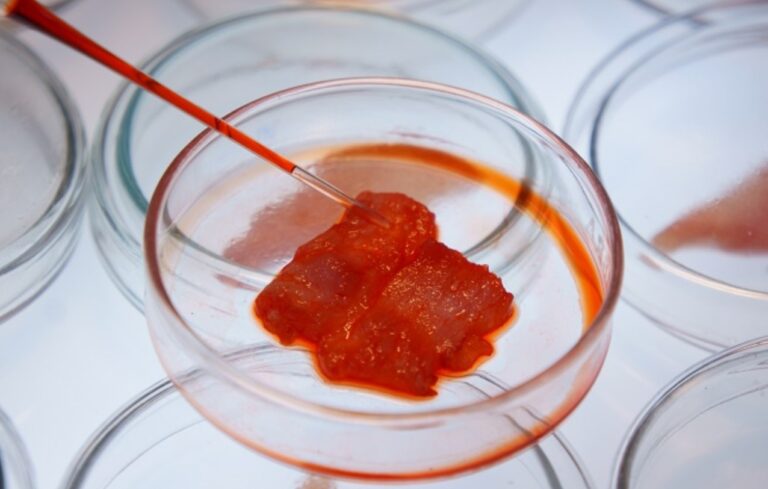The first lab-created (cultured) chicken has been approved for sale in the United States. Two California-based companies, Upside Foods and Eat Just, have received the okay from the U.S. Department of Agriculture. This is the final authorization needed for each company to begin production and marketing. Soon, then, it will arrive in restaurants and supermarkets. And no, this is not bad news.
Animal agriculture accounts for nearly 15 percent of global human-caused greenhouse gas emissions. And a growing number of companies are working to bring alternatives to market that have the potential to reduce emissions. Thus, solutions with lower environmental impact are being sought.
Producing meat (and intensive livestock farming in general) has a negative effect on climate change. Moreover, to date, when it comes to alternative but nutritious products, proposals are often limited to vegetables and plant-based foods.
Upside Foods and Eat Just, as well as other cultured meat companies, are therefore concretely making products using animal cells grown in bioreactors. But, with tissue samples from live animals being isolated and their cells grown in the laboratory. As these cells grow and multiply, they can be turned into food, without generating harmful emissions. It is, therefore, good news.
Table of Contents
Lab-grown chicken kicks off in the U.S.
Singapore became the first country to approve cultured meat, giving Good Meat, the cultured meat division of Eat Just, the green light to sell its cultured chicken in 2020. Eat Just was founded in 2011, and in the U.S. the company has also been involved in producing other plant-based foods in the laboratory , including an alternative to egg.
The approvals that have come from U.S. authorities are first of their kind in the United States. And, could lead the way for many other countries in this regard. From what has emerged from early news published in overseas newspapers, the two companies will start by producing chicken in the laboratory. Which will be the first meat they put on the market (in supermarkets and restaurants) .
In particular, the companies’ directors have made it known that they plan to start with restaurants before moving into retail sales. Eat Just’s cultured chicken will be sold first at an as-yet undisclosed restaurant in Washington, DC. While Upside’s synthetic meat, which it produces at a pilot facility in California, should be available by the end of the summer at Bar Crenn, a San Francisco restaurant.
Read also: FoodTech: what is it and what are its benefits
The climate impact of meat production
There are growing concerns about the climate impact of meat production. Suffice it to say that currently, livestock production alone consumes 70 percent of the world’s arable land. And, it uses large amounts of water. This could increase further in the future, as meat consumption is expected to double by 2050 with the growth of the middle class in China, Brazil, India and across Africa.
But, if expanded, lab-grown meat would use substantially less land and water. Recent research indicates that producing 1 kg of lab-grown meat requires about 99 percent less land than would have to be used by European farms to produce the same amount. Producing 1 kg of meat in a lab would also require between 82% and 96% less water than a conventional farm, depending on the product being compared.
Growing meat from cells can also reduce the risk of disease development and prevent unnecessary animal suffering.
There are obvious welfare problems associated with the crowding of animals on farms. But beyond ethical and moral convictions, these cramped conditions also make the development and spread of diseases such as avian flu, mad cow disease and African swine fever virus more likely.
True, farmers use antibiotics to prevent the spread of disease. But their overuse is contributing to an increase in antibiotic resistance. The United Nations estimates that, by 2050, antibiotic resistance will lead to more deaths than cancer worldwide.
Meat products that are grown from cells are finally free of contamination by fecal bacteria. Such as E. coli, Salmonella and Listeria. These bacteria live inside an animal’s intestines and can contaminate meat when the animal is slaughtered.
Thus, lab-grown meat has the potential to make our food system more sustainable. But this new approach also requires policy solutions and appropriate legislation.
Read also: Beef, plant-based or cultivated: what is the climate impact of a burger?












